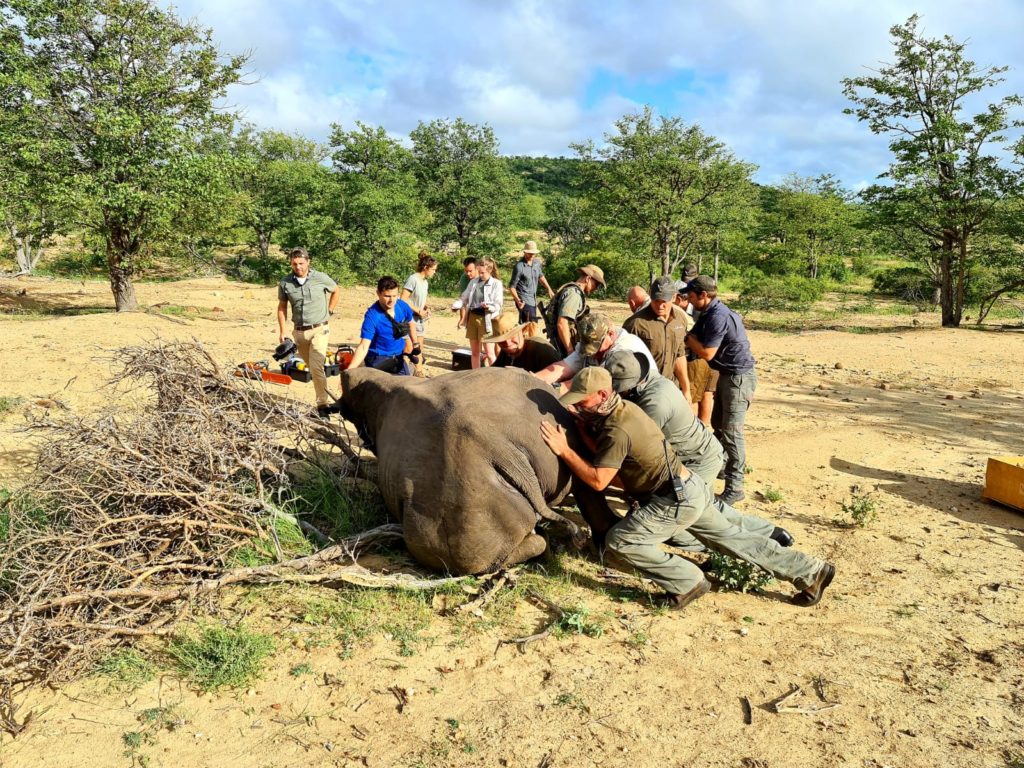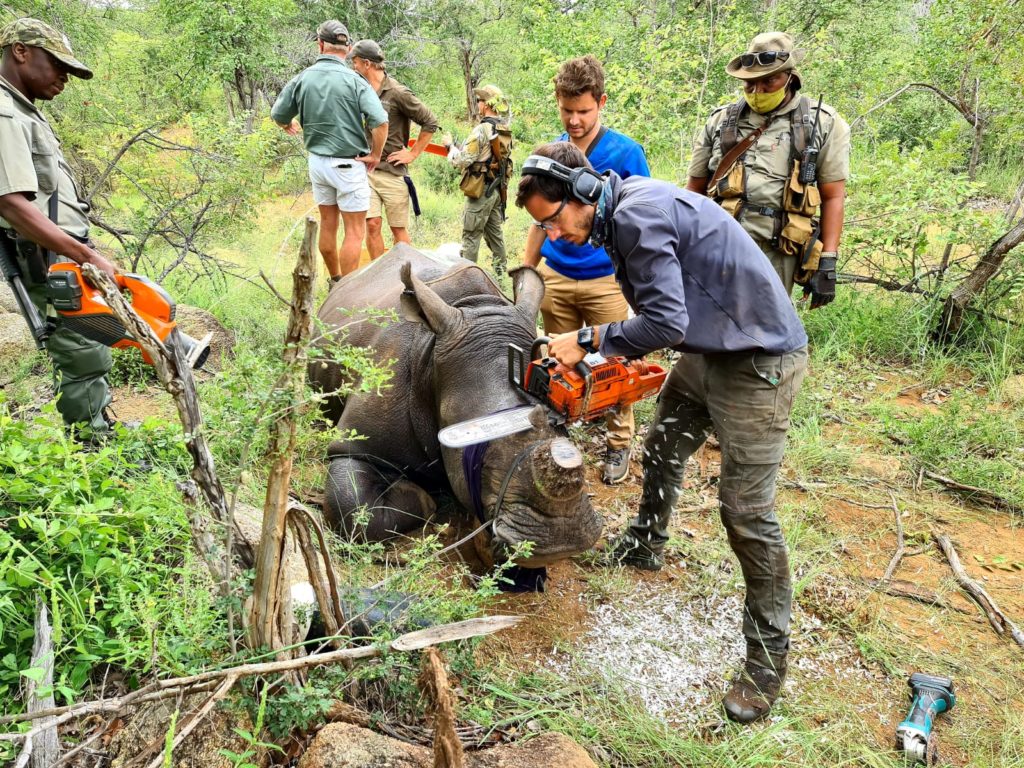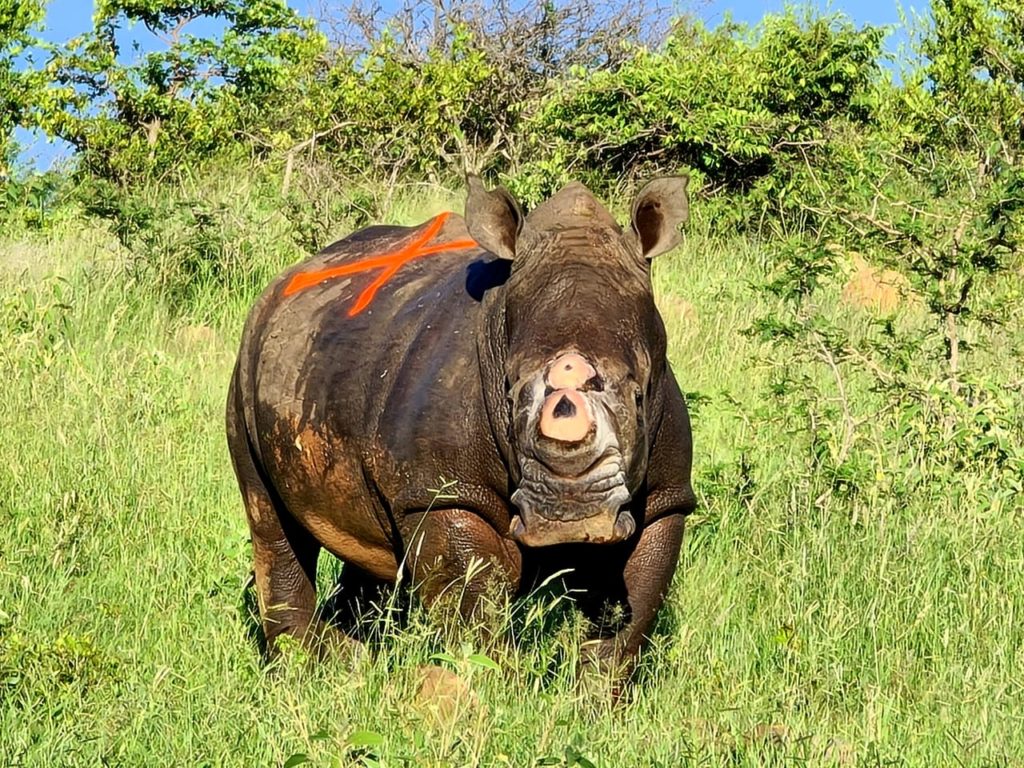


In a well-coordinated and extensive operation, the Selati Game Reserve was able to dehorn all its Rhino between the 10th and 15th January 2021. This valuable initiative was funded and coordinated through the non-profit organization Nkombe-Rhino, in conjunction with their ever-willing donors, who have generously supported various operations throughout the Kruger to Canyon Biosphere.
After the loss of 2 White Rhino to poachers early in December 2020, the Selati Board made a swift decision to dehorn all its Rhino. After seeing the devastation of the poacher’s work meant that all the remaining Rhino needed to have their horns removed with immediate effect, no matter how small, to deter any further loss of life. Although Selati has an ongoing dehorning policy, this operation accomplished its objective in a matter of a few days. All rhino horns were microchipped and removed offsite to a secure location.
To see a live rhino without its horns is not ideal, but because of the ongoing poaching threat “desperate times call for desperate measures”! There are those who are opposed to dehorning rhino in protected areas however it has been shown to be an effective mitigating measure in curbing poaching in many of the surrounding reserves.
Bryan Havemann, GM of Selati Game Reserve said, “We are very grateful to Nkombe Rhino, the NPO who secured the funding, and we would like to also give a particular thanks to the other team members who made this such a seamless operation: Wildscapes Veterinary & Conservation Services; the Greater Kruger Environmental Protection Foundation (GKEPF) Air Wing, who through Bruce McDonald supplied Savannah fixed-wing aircraft for locating the rhino. In addition, Gerry McDonald, for his exemplary helicopter skills that are so essential to these operations for the darting and herding of animals to where the ground crews can access and work quickly and safely”.
The Selati Game Reserve management team will continue to apply strict counter-poaching measures and through their ecological monitoring initiatives ensure the effective protection and management of all species on the reserve.
